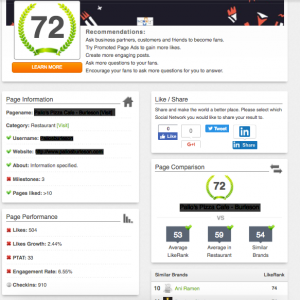
Herman Melville’s mishaps and how to avoid them with referral marketing
Recently, Christopher Ross, Research Director at Gartner, published a very interesting article entitled, Moby Dick Marketing, on the Gartner blog. As the title suggests, it referenced Melville’s novel Moby Dick, and explained that while this novel is an intelligent piece of writing, it might have benefited from some editing. Ross goes on to advise businesses on how to avoid making the same mistakes when telling their own story. The conclusion of the blog being less is more when you’re trying to get your story heard. I agree with Ross on this. But what about when you’re trying to tell your story through PPC, email, or any other marketing initiative where you’re competing with the overabundance of your competition’s content? You can’t edit all of Google, or delete emails prospects are receiving from other companies. You can only pour more money into these channels to try and get more viewing time with target buyers.
However, even as companies are dumping more money into PPC, they’re getting less and less return (unlike referral marketing). According to a new WordStream benchmark report, the median conversion rate through paid search has decreased by almost 50% in the last four years. The 2012 paid search ads having a median conversion rate of 5.36%, while display ads came in at 4.68%, and by 2016 paid search decreased to 2.70%, with display ads at a shocking .89% median conversion rate.

WordStream Google AdWords Benchmark Study
Why did this happen? Essentially, you’re one page of Melville’s 135 chapter, 600-page book, and your target buyers are reading the cliff notes.
But that’s not the only struggle that modern marketing and readers of Moby Dick face. The difficulty of Melville’s 135 chapter novel stemmed also from its lack of direction. Up until chapter twenty, Melville was writing a comedy, not a drama, but upon reading some of Shakespeare’s great works, switched gears and decided to write a drama. Mainly, he was trying to accomplish too many things in one novel. Marketers face that same dilemma. As marketing departments try to make up for their drop in conversions they are taking on more and more lower performing channels without seeing direct ROI.
But as we compare Melville to marketing, there is a glaring difference that works in Melville’s favor. As many scholars point out, the audience in the 19th century was much more patient than they are today. While Melville’s Moby Dick might go on and on, he was writing for his audience. If companies are looking to market to their audience it needs to be in a format current target buyers will hear today.
In the same four-year span that PPC effectiveness decreased, referral marketing’s average conversion rate shot up to 35% (Amplifinity). Why did that happen? Because that was what the target buyer was listening to.
How referral marketing can help you edit your marketing initiatives
While today’s readers of Moby Dick flock to cliff notes in order to avoid sifting through what many consider the monotonous details of the novel, leads are flocking to their network of peers, friends, and family in order to avoid sifting through the endless marketing noise. Businesses especially are looking for the most conscious way to narrow down companies and products in order to save time and resources. Referrals provide leads with a trusted source to gather information and validate a company’s ability to provide an offering that fulfills their needs.
Referral marketing software help you take control of this process. Current customers and partners know if certain individuals in their network of peers, family, and friends are in the market for a product or service like yours. Referral marketing programs incentivizes customer and partners to make a trusted introduction between those individuals and your business.
In addition to that, you can empower your customer and partner advocates with both online and offline trackable referral methods and persuasive content that they can provide to your prospects in order to nurture them.
As Barry Nalebuff, Milton Steinback Professor, Yale School of Management, co-author of Why Not? and Co-opetition, and co-founder of Honest Tea, says in his editorial review of the book Content Trap, “‘Content is king’ may once have been true, but favoring content over connections will only get you dethroned today.”
Referral marketing programs connect target buyers to your content and offerings through customer and partner advocates. And as Bharat Anand, the author of the book, Content Trap, Henry R. Byers Professor of Business Administration in the Strategy Unit at Harvard Business School, exclaimed at Dreamforce, “Companies that win on connections really don’t have to market.” This mean that you get a better conversion rate and higher quality leads than channels like PPC for less money and can eliminate marketing channel that no longer meet expectations. And not only that, referral are proven to have:
- A 4x higher conversion rate than traditional marketing channels (emarketer)
- Reduce churn by 18% compared to non-referred customers (Harvard Business Review)
- Increase LTV by 16% compared to non-referred customers (Harvard Business Review)
Business & Finance Articles on Business 2 Community
(74)
Report Post





